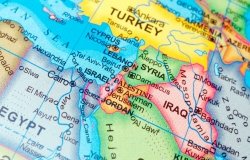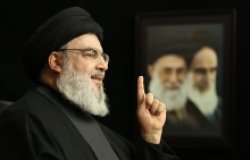Saudi Arabia’s Popularity Wanes in Region
Saudi Arabia’s standing among some of its neighbors has faltered substantially since 2007, according to a new Pew Research Center survey. For example, favorability ratings fell 13 percentage points in Egypt and the Palestinian territories between 2007 and 2013. Overall opinion of the kingdom, however, varied widely in the Middle East.
Saudi Arabia’s standing among some of its neighbors has faltered substantially since 2007, according to a new Pew Research Center survey. For example, favorability ratings fell 13 percentage points in Egypt and the Palestinian territories between 2007 and 2013. Overall opinion of the kingdom, however, varied widely in the Middle East and less so in Africa, Asia and Europe. The results of the survey were based on responses from 37,653 people between March 2 to May 1, 2013.
About 78 percent of Egyptians polled still had a favorable view of Riyadh in 2013 versus 91 percent in 2007. The slip in favorability was even more evident in Lebanon. But sectarian background played a pivotal role in the Lebanese responses. Only about half of Christian participants and just six percent of Shiites viewed Saudi Arabia favorably, whereas 82 percent of Sunnis did. Overall, about 82 percent of Lebanese viewed Saudi Arabia favorably in 2007 compared to only 51 percent in 2013 -- a 31 point drop. In other countries, like Tunisia, respondents were more evenly split in their views of the Sunni kingdom. Palestinians were almost evenly split as well.
But in Jordan, another Sunni kingdom, about 88 percent of those polled had a favorable view of Saudi Arabia. Jordan is an exception in that participants' views have hardly changed at all since 2007.
Saudi Arabia’s image outside of the Middle East remained relatively positive in countries with large Muslim populations like Indonesia, Pakistan and Senegal. Pakistanis showed the most support for the desert kingdom, with 95 percent holding a favorable opinion and none expressing an unfavorable view.
When asked how much influence Riyadh has on their country, respondents were largely divided. Lebanon was the exception, where 83 percent said that Saudi Arabia had a great deal or fair amount of influence on the country. Of those polled across the region who thought Saudi Arabia had a major influence on their country, majorities in Egypt, Jordan and the Palestinian territories saw the kingdom’s influence as a good thing. But majorities in Tunisia and Turkey disagreed.
On respecting personal freedoms, Saudi Arabia received mixed reviews from its neighbors. Only in Jordan and Egypt did clear majorities say that the Saudi government protects the personal freedoms of its citizens.
But slight or clear majorities of participants in non-Middle Eastern countries with substantial Muslim populations generally credited the Sunni kingdom with protecting personal freedoms.
Opinion was more mixed in Asia and Latin America. But no clear pluralities of participants from any country thought Saudi Arabia respected its people's personal freedoms.
Respondents in Europe and North America were the most critical. About 86 of Spanish participants were critical of Saudi Arabia along with 84 percent of Greeks and 81 percent of French. Some 72 percent of Americans did not think Riyadh's government respected personal freedoms.
Across the 39 countries surveyed, a median of only 18 percent thought the Saudi government respects personal freedoms.
Related Program

The Islamists
Learn more about Hamas and how it relates to similarly aligned organizations throughout the region. Read more










